Links to external sources may no longer work as intended. The content may not represent the latest thinking in this area or the Society’s current position on the topic.
Diversity Conference 2018: Achieving diverse leadership in a research environment
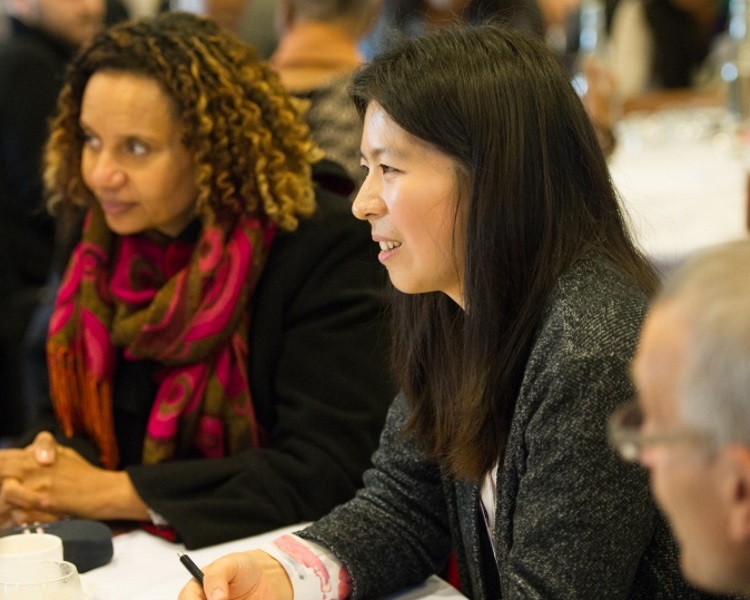
The Royal Society is committed to increasing diversity in STEM by seeking out participation from under-represented groups, in order to build and develop a world in which studying and working in science are open to all. This year’s conference will explore barriers to diverse leadership in STEM and how the research community can work together to overcome them.
Our 2018 conference brings you high-profile speakers from STEM academia and industry who will share their expertise in creating inclusive leadership teams and overcoming barriers to success. Highlights include Professor Michelle Ryan exploring why the precarious ‘glass cliff’ makes it harder for under-represented groups to achieve their leadership ambitions, and an afternoon address by Court of Appeal judge and Chairman of the Judicial College, Lady Justice Rafferty. Panel discussions will bring together experts from across AI, chemistry, engineering and other fields to discuss barriers to diverse leadership, such as gender pay gaps and research funding decisions, and delegates will be able to share their own ideas on solutions to these barriers at roundtable discussions. Our eminent speakers will also be sharing their views on how the scientific community can better support under-represented groups into leadership roles.
The conference will be of particular interest to the research community, scientists, diversity practitioners, learned academies and societies, professional bodies and policy-makers.
Schedule
| 10:15 - 10:45 |
Keynote address
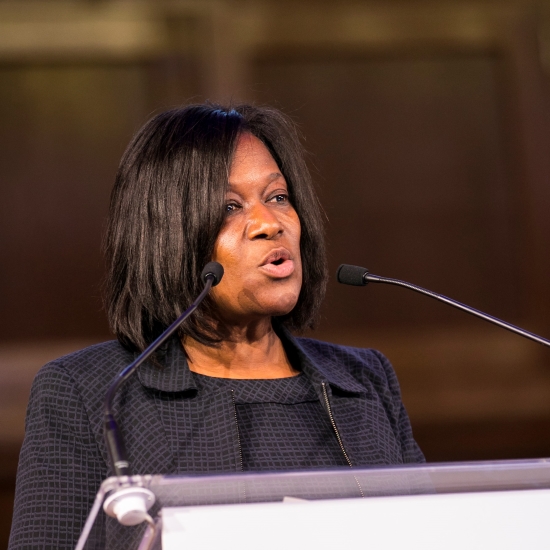
Jacky Wright

Jacky WrightA transformational global leader and innovative technologist, Jacky is a passionate ambassador for women and BAME in technology. In late 2017, she became Chief Digital and Information Officer for HMRC, where she is responsible for driving one of the largest digitally-enabled transformations in Europe. Jacky’s influence and interests extend to promoting the digital transformation of public services in the widest sense, as well as a number of social issues. Jacky is patron of techUK's Public Services Board (PSB), which champions opportunities for the UK tech industry to collaborate across government. She is partnering with techUK and other organisations to address social mobility by providing access to digital skills training for all. A senior BAME Civil Service leader, HMRC's Disability Champion and a member of the Civil Service Diverse Leadership Task Force, Jacky champions diversity across government and provides advice on the Civil Service’s strategy for improving BAME and disabled representation at all levels. Jacky sits on various boards, including City, University of London, the Institute of Coding and YearUp, and works to promote equal opportunities and access to education for all. She has an honorary doctorate from Aston University, and has received many prestigious industry awards. |
|---|
Chair

Professor Christl Donnelly CBE FMedSci FRS

Professor Christl Donnelly CBE FMedSci FRS
Christl Donnelly is a statistician and epidemiologist studying the spread and control of infectious diseases, with a particular interest in outbreaks. She studied mathematics (BA) at Oberlin College and biostatistics (MSc, ScD) at Harvard School of Public Health, graduating in 1992. Following a lecturer position at University of Edinburgh (1992-95), she joined the Wellcome Trust Centre for the Epidemiology of Infectious Diseases at University of Oxford (1995-00). Since 2000, she has worked at Imperial College London. Christl has studied Zika virus, Ebola, MERS, influenza, SARS, bovine TB, foot-and-mouth disease, rabies, cholera, dengue, BSE/vCJD, malaria and HIV/AIDS. She is a leading member of the WHO Ebola Response Team (2014-). She was also deputy chair of the Independent Scientific Group on Cattle TB (1998-2007) which designed, oversaw and analysed the Randomised Badger Culling Trial. In addition to epidemiology and disease control, she is interested in conservation and animal welfare. She is a Fellow of the Academy of Medical Sciences and an Honorary Fellow of the Zoological Society of London. In 2002, she won the Franco-British prize for scientific research from the Académie des Sciences in Paris.
| 10:45 - 12:00 |
What are the barriers to diverse leadership?
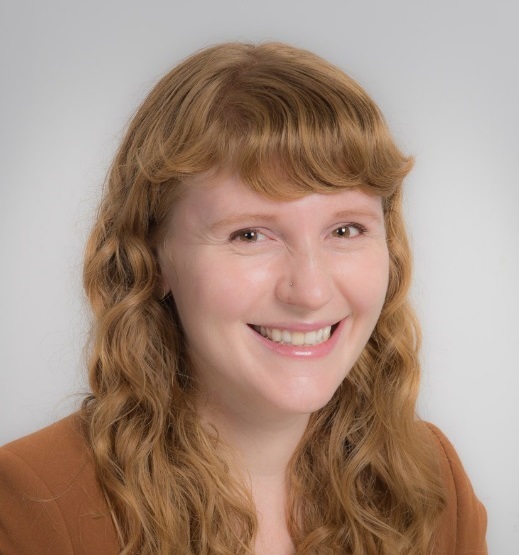
Amanda Aldercotte, Advance HE

Amanda Aldercotte, Advance HEDr Amanda Aldercotte, Head of Knowledge and Research, Advance HE. After completing her PhD in Psychology at the University of Cambridge, Amanda joined Advance HE’s research team in August 2016 and began managing the team in November 2017. She leads the production of Advance HE’s annual statistical reports, providing the sector with national demographics of the UK’s staff and student populations. She authored a series of reports on the experiences and perceptions of gender equality among STEMM academics as lead research on the national Athena Survey of Science, Engineering and Technology (ASSET) 2016. Recently, Amanda co-produced a brief report on the gender pay gap in English higher education institutions examining the most common factors underpinning these gaps and how the gender pay gap relates to an institution’s size, mission group and Athena SWAN participation. A second report on the gender pay gap exploring the actions institutions are taking to mitigate the gender pay gap is due for publication September 2018. 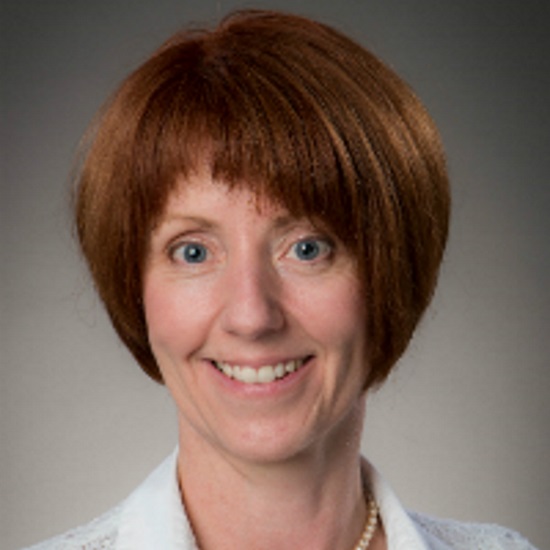
Professor Carole Mundell, University of Bath

Professor Carole Mundell, University of BathCarole Mundell is Professor of Extragalactic Astronomy and Head of the Department of Physics at the University of Bath. An observational astrophysicist, she exploits international ground- and space-based facilities across the electromagnetic spectrum to study cosmic black holes and their environments. Her team specializes in developing and using novel technology on autonomous robotic telescopes to catch the fast-fading light from powerful but unpredictable cosmic explosions such as Gamma Ray Bursts. Using this technology, Carole's team discovered the first direct evidence of large-scale ordered magnetic fields in plasma ejected at speeds close to that of light by a newly formed, distant black hole system. Carole has held prestigious fellowships including a Royal Society Wolfson Research Merit Award for the study of black-hole driven explosions and the dynamic Universe and in 2016, she was named FDM Everywoman in Technology Woman of the Year. With the wealth of new astronomical facilities planned to come online in the coming decade, she is particularly interested in the engineering, mathematical and computing challenges of real-time, autonomous and interpretive systems in the era of 'big data'. Image: © IDPS, University of Bath 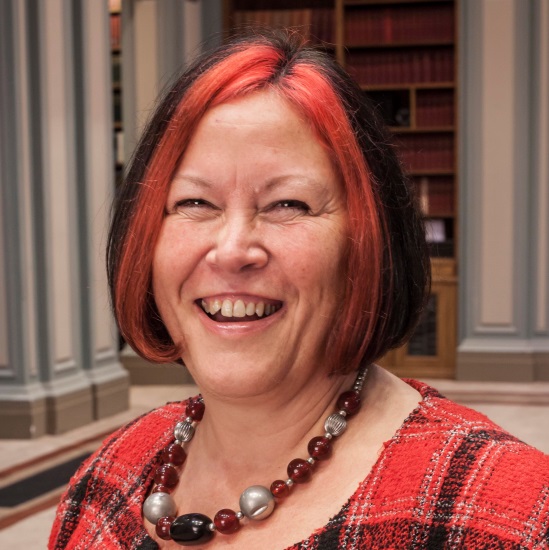
Professor Lesley Yellowlees

Professor Lesley YellowleesLesley Yellowlees CBE FRSE, HonFRSC, recently retired as Vice Principal and Head of the College of Science and Engineering at the University of Edinburgh. She has worked with the Royal Society of Chemistry for many years and became their first female President in July 2012. She is a champion for the promotion of women in science and in 2011 was honoured by the IUPAC as a Distinguished Woman in Chemistry for her scientific contributions to the global chemistry community. Her research interests include inorganic electrochemistry and spectroelectrochemistry, EPR spectroscopy, solar energy and CO2 conversion. Her other interests include the public engagement of science. She was awarded an MBE in 2005 for services to science and a CBE in 2014 for services to chemistry. She was elected as a Fellow of the Royal Society of Edinburgh in 2012 and an Honorary FRSC in 2016. She has honorary degrees from Aberdeen, Bristol, Edinburgh Napier, Heriot-Watt, Huddersfield, The Open, Queen’s and Strathclyde Universities. Lesley is married to Peter and they have two children, Sarah and Mark and two grandchildren Finn and Molly. 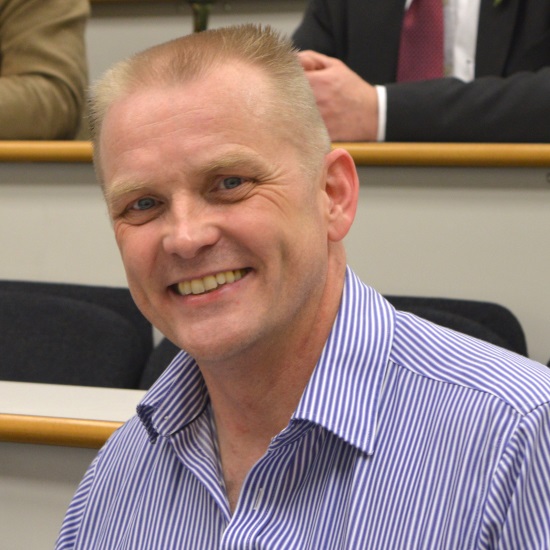
Professor Tom Welton, Imperial College London

Professor Tom Welton, Imperial College LondonProfessor Tom Welton is Dean of the Faculty of Natural Sciences at Imperial College London and Professor of Sustainable Chemistry. He was Head of the Chemistry Department from August 2007 to December 2014, during which time the Department achieved an Athena Swan Gold Award for efforts in promoting women in science. He became Dean of the Faculty in January 2015. Tom works with ionic liquids in order to develop sustainable solvent technologies. He is the author of over 100 papers, primarily on the structures and chemistry of ionic liquids and their solutes. Tom lives in London with his husband Mike. |
|---|
| 13:30 - 14:15 |
The Glass Cliff
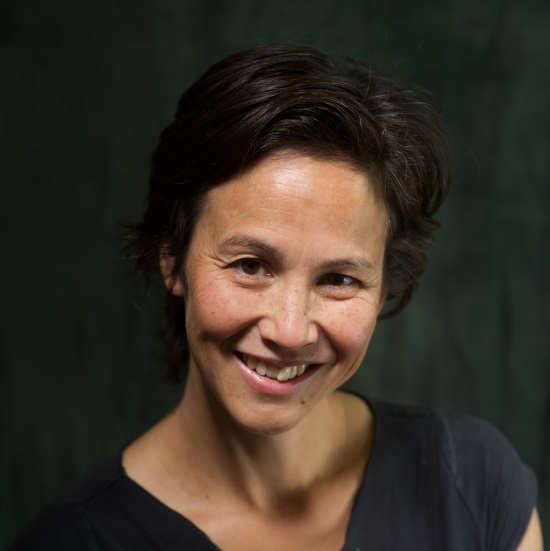
Professor Michelle Ryan

Professor Michelle RyanMichelle Ryan is a Professor of Social and Organisational Psychology at the University of Exeter, UK, and a part-time Professor of Diversity at the University of Groningen, The Netherlands. She currently holds a European Research Council Consolidator Grant examining the way in which context and identity shape and constrain women's career choices (with Thekla Morgenroth, Chris Begeney, and Renata Bongiorno). With Alex Haslam, she has uncovered the phenomenon of the glass cliff, whereby women (and members of other minority groups) are more likely to be placed in leadership positions which are risky or precarious. The term 'glass cliff' was short listed for Word of the Year by the Oxford English Dictionary in 2016 and was named by the New York Times as one of the ideas that shaped 2008. Michelle lives in an old train station in rural Devon. |
|---|
Chair
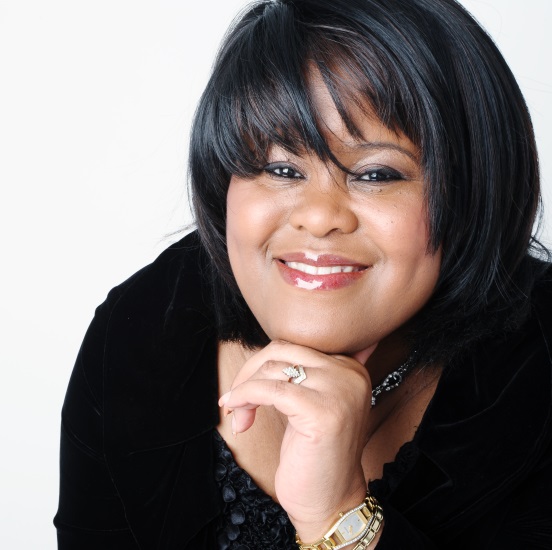
Ms Sandra Kerr

Ms Sandra Kerr
Sandra is Business in the Community’s Race Equality Director. Sandra works together with the race advisory board to set the agenda for race and employment in the UK. Before joining Business in the Community Sandra worked in the Cabinet Office advising on diversity and inclusion. In January 2012, Sandra was awarded an OBE in the Queens New Year’s honours list for services to Black and Minority Ethnic People.
In October 2012, Sandra was appointed Chair of the Ethnic Minority Employment Stakeholder Group (EMESG) sponsored by the Department for Work and Pensions, advising on issues related to the disadvantages some people from ethnic minority backgrounds face in the labour market. Sandra chairs the Trustee Board of Elevation Networks, an award-winning youth employment charity that seeks to develop leadership potential and increase employability. Key pieces of research she has spearheaded include Race at the Top 2014 - looking at ethnic minorities and leadership in the UK. In April 2015 Sandra’s campaigning work was recognized when she won the Women: Inspiration and Enterprise (WIE) Equality Award.
| 14:35 - 15:50 |
How do we support under-represented groups to put themselves forward?

Faye Banks, Costain Group

Faye Banks, Costain GroupWith a long and esteemed professional career within Engineering, I am absolutely passionate about furthering what engineering provides for this country and the wider international engineering community. I have been a STEM ambassador and absolutely committed to help raise the profile of Engineering over two decades in industry. Having left school with no qualifications after a troubled childhood, I was absolutely fascinated with STEM, and decided to re-educate myself, gaining an apprenticeship, and then progressing through a variety of industries including manufacturing, water, electrical transmission and distribution. During that journey, I started continual education, eventually earning 4 Master’s degrees amongst many other qualifications. My focus and drive towards engineering has been absolute. While I have not sought recognition, I won the prestigious title of UK Young Woman Engineer of the Year in 2004, was named in the Telegraph's Top 50 female Engineers, Open University Alumni of the Year 2018 and English Women’s award for services to Science and Engineering 2018. Now as Director of Energy for Costain, I am proof that with that with the right drive, and support anyone can progress a successful life in STEM. 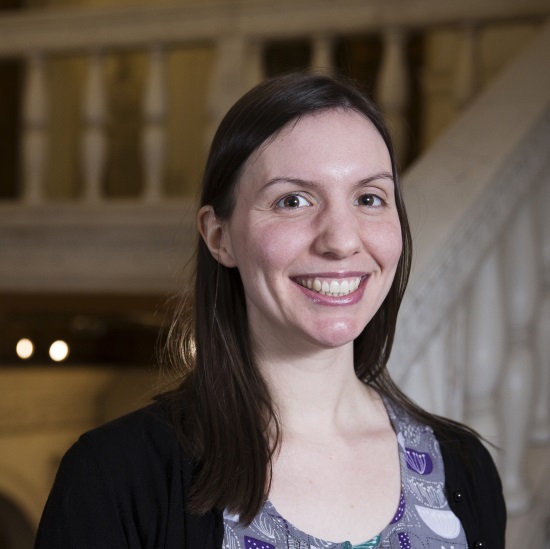
Dr Elin McCormack, The Rutherford Appleton Laboratory

Dr Elin McCormack, The Rutherford Appleton LaboratoryElin is a Royal Society Dorothy Hodgkin Research Fellow based at the Rutherford Appleton Laboratory (part of the Science and Technology Facilities Council). Her research involves detecting and analysing the spectroscopic signatures of gaseous molecules in our atmosphere. These types of measurement allow more detailed understanding of atmospheric phenomena and can provide valuable inputs into forecasting models for weather patterns. She combines a career managing advanced research projects with bringing up two young children. 
Dr Shakir Mohamed, DeepMind

Dr Shakir Mohamed, DeepMindShakir Mohamed is a staff research scientist at DeepMind in London. Shakir's research is in the areas of statistical machine learning and artificial intelligence. His work focuses on the interface between probabilistic reasoning, deep learning and reinforcement learning, and how the solutions that emerge at that intersection can be used to develop general-purpose learning systems and in addressing global challenges. At DeepMind, Shakir is a member of its diversity steering committee, and leads its LGBT+ employee resource group. Shakir also leads the Deep Learning Indaba, an independent grassroots organisation whose aim is to build pan-African capacity and ownership in AI: by building communities, creating leadership and recognising excellence in AI across the African continent. Shakir also sits on the diversity advisory board for the conference on Neural Information Processing Systems - the leading conference in the field of machine learning and AI. Shakir has been at DeepMind since 2013. Prior to joining DeepMind, he held a Junior Research Fellowship from the Canadian Institute for Advanced Research (CIFAR) as part of the programme on Neural Computation and Adaptive Perception. Shakir holds a PhD in Statistical Machine Learning from the University of Cambridge. He is from Johannesburg, South Africa, where he completed his undergraduate and masters degrees in electrical and information engineering. 
Professor Paul Upchurch, University College London

Professor Paul Upchurch, University College London |
|---|
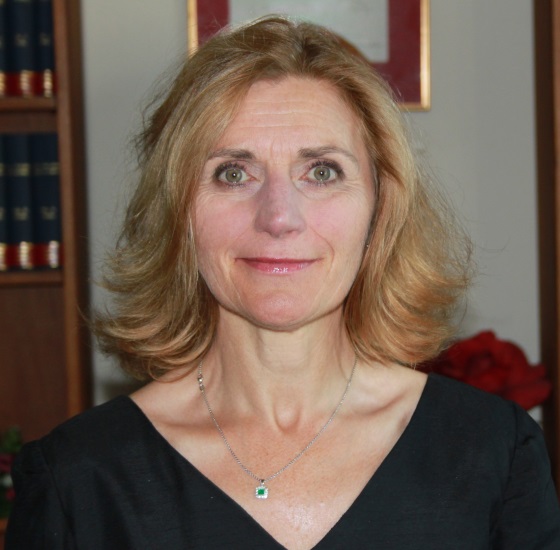
Dame Anne Rafferty

Dame Anne RaffertyDame Anne Rafferty DBE retired from the Court of Appeal of England and Wales in July 2020. She was called to the Bar in 1973, practiced in criminal law, took Silk (made a QC) in 1990 and was elected a Bencher of Gray’s Inn in 1998. She was appointed a Recorder in 1991, a Deputy High Court Judge in 1996 and a Judge of the High Court (Queens Bench Division) in 2000. Dame Anne was the Presiding Judge of the South Eastern Circuit between 2003 and 2006, was appointed a Lord Justice of Appeal and made a Privy Counsellor in 2011. She was Vice Chairman of the Judicial Appointments Commission from 2017-2020 and she chaired the Judicial College from 2014 to 2020. She now chairs the Royal Society’s steering committee on judicial primers, part of the Science and the law programme. She is also a member of the King’s Counsel Appointments panel (applications for Silk), is a member of the Judicial Appointments Commission’s outreach scheme to encourage appointments to the judiciary which embrace diversity and is the Inspector of the Iraq Fatality Investigations. She has been Chancellor of the University of Sheffield since 2015. |
